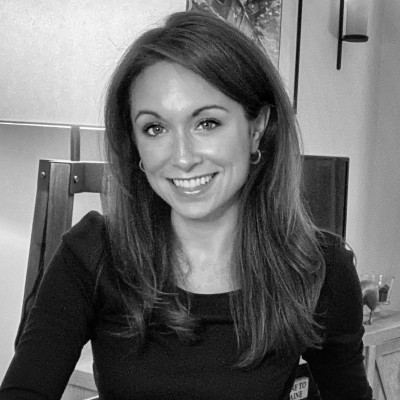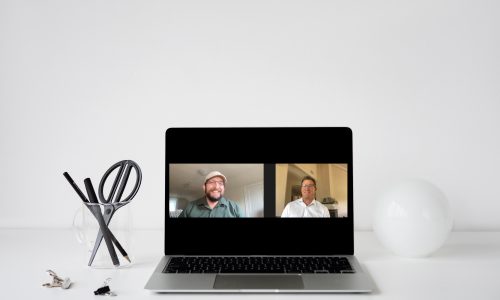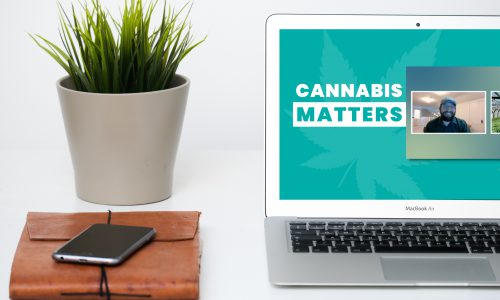Quality over everything is the mantra behind 710 Labs and it shows. The brand is comprised of award-winning artists obsessed with making the richest flavored, pesticide-free, organically fed, small batch, hand trimmed cannabis on the planet.
In the latest episode of Cannabis Matters, we go inside 710 Labs with its Chief Marketing Officer Nick Fotis who has put his digital marketing skills to work in this budding industry to build a best-in-class cannabis company.
ForceBrands‘ Cannabis Client Strategist and host of Cannabis Matters, Eric Rosen, catches up with him as he chats about consumer trends, the art and science of team building, and more. Watch our exclusive interview with him and read the full transcript below.
Nick Fotis: I believe that no marketing department, no consumer insights budget can replicate the magic that we have in our founders and their passion and kind of ethos being a part of the space.
Eric Rosen: Welcome to Cannabis Matters. I’m Eric Rosen, and we are here today with Nick Fotis of 710 Labs, the Chief Marketing Officer.
NF: Yeah, great to be here. Thanks for your time.
ER: Let’s start at the beginning. I’m really curious, what drew you into the cannabis space — the genesis of your journey on this front?
NF: So one of the things that I like to say about cannabis, you have really complicated multivariate decision-making: you have brand, you have form, you have dosage, you have flavor, you have potency, you have all these multivariate decision-making factors that are very empirical, but then you also have very deep-seeded social stigma around the product. And I think no matter how progressive or accepting of cannabis and the family you grew up in, because of the way our society has treated the plant, that’s in some sense, conscious or subconscious, the impact of that stigma is there. So as kind of a consumer behavior nerd like myself, it was really attractive to me to get to dive in and tackle those challenges. I also would just sort of add to that, that, you know, I’m a builder by nature and this is a category that’s building and just personally and from a values perspective, I believe in progressing the world in a certain direction and playing a part and acceptance of this plant and breaking down some of the behaviors and baggage that have come out of it in the past. It was a nice kind of harmony of business and interests and personal values.
ER: As someone with extensive digital marketing skills in real disruptive marketing chops, how do you think about leveraging data into actionable insights at 710 Labs maybe in ways that are similar to what you’ve done before outside of the space, as well as different?
NF: Yeah, I think my perspective coming into the category having spent a long career in digital marketing, but coming into the category fresh, what helped me was maybe to not feel as burdened by the challenges as it relates to data in the space and that it’s a nascent category, there isn’t great technology and infrastructure, you have dramatic fragmentation in technology partners within a state, let alone from state to state, but what I always said was the gift that we get in this category is almost every purchase is linked to a consumer profile and that is a tremendous amount of data for us to work with. So preceding my time at 710 Labs where I worked on brands that had a heavier dispensary play and more of my time went to the retail part of the business, all of my efforts really originated in trying to harness that data and do something with it, whether it was our own insights to guide product development, our messaging work, whether it’s deciding our marketing tactics, or our kind of far upstream brand and product development and innovation pipelines. So as soon as I stepped into the category, not being as laced with the baggage of it, it sort of drove us to say, we really need to take advantage of this and look at it, especially in medical markets, look at the business almost like an e-comm business in that it’s a lead gen business and if we’re able to acquire those people who are curious or interested or driving to get into the category, if we can capture them and build a relationship with them upstream, we saw really tremendous long-term value in our relationship with those consumers.
ER: What inflection points have you seen within the space since you’ve gotten here that you either expected or were maybe unexpected that was just something that you didn’t anticipate?
NF: Well, I think the easiest answer to your question is the impact of Covid on the category, especially from my perspective in digital marketing, where almost overnight, we saw at the time 30 to 40 stores, somewhere between, I’d say 10 to 30 percent of our orders coming through online to with the flip of the switch and the onset of quarantine regulations to 90 to 98 percent of our transactions online. Now over time, that’s kind of evened out and I’d say somewhere in the upper 60s in most states and on the whole that I’ve seen. But that is a dramatic impact on consumer behavior and consumer decision-making. We were rewarded, the grassroots cannabis where I was at the time for some of the heavy lifting that we had done around putting a technology structure in place to be able to take in those orders both from a retail and marketing perspective and digital perspective. But then also it’s had kind of a cascading effect on the importance of online content and merchandising that way, the importance of that kind of one-to-one relationship through text messaging and email. So that’s the big sort of tangible one that I feel like I can point to easily.
ER: Shifting gears, I come from a genetics background within the space so I’m always curious how people stay on top of consumer trends. So as you think about and anticipate what trends are gonna look like with respect to hash, whether it’s live rosin, whether it’s live resin, you know, any of the types of actual sub-product categories of concentrates, you know, how do you think about staying at the bleeding edge from a consumer preference standpoint when you’re thinking about what cultivars to grow and what form factor to put it in? Because you’re obviously you are at the bleeding edge and 710, I can’t think of another company that’s further at the bleeding edge for just being best-in-class, bar none for concentrates and we’ll talk about some of the other product categories in a minute but specifically for hash, how do you stay on top and what’s next?
NF: Well, what I’m about to say, I say as a person who spent a lot of my career with consumer insights being a core part of what I do. I have a spiritual answer, not a process one. And I think it’s one that makes our brand and our innovation pipeline much more powerful than those that are informed by quantitative data and focus groups and it really starts with our leadership. I mean, our founders are individuals who have spent their entire adult and professional careers involved with cannabis, consuming it, and finding different ways to improve the process of growing it and manufacturing it. They’re people who are on the cutting edge and in contact with the most advanced breeders around the globe. They’re people who can step into our production facility today and do basically any job in the production facility if they needed to.
ER: Most cannabis companies are really lucky to find the kind of success that you’ve had in concentrates in a single category. It’s really hard to master and be known as the head of class in a single category and you’ve managed, 710 has managed to do that in multiple categories. You’re also, when I ask the cannabis connoisseur friends of mine what brands they respect, 710 comes up as an answer for both, concentrates as well as flower, which congratulations. It’s pretty amazing you all have created that. How did you manage to bridge the quality constant from one category to another?
NF: One of the words, to be truthful we have a brand that stands for something. Absolutely. And it’s a brand that’s grown and that really means something which is I think first unique in the space but we don’t have your classic, you know, brand pyramid and all those clean documents.
One of our core attributes and values is the term uncompromising, and I think that is really the value that has allowed us to stick to our mantra, which is quality over everything.
And you know, again, having been in the space for a while like you, I think you know that both probably from your personal-professional experience being close to companies who have put less than high-quality products out into the market and then also from your personal experience of picking something up and smoking it knowing that it’s not quite right. That’s something where we have made a lot of hard decisions, a lot of financially unfriendly decisions in the past for us, but sticking to that quality over everything mantra and not putting product into market that we don’t believe is up to the standards of what our founders would smoke and what we would credibly sell to our biggest fans.
ER: Talk to us about your current thinking around the art and science of building dream teams.
NF: So I’ve had the fortune of building, this is really the third team in the cannabis space that I’ve built, and in one case from scratch and other cases kind of building the building. I think that your terminology of art and science is very apropos for what we’re looking for. And specifically at 710, one of the things that makes our culture special and different is we have a lot of people in professional roles who don’t come from functionally that background. We have a lot of people who have worked in dispensaries, who have worked in cultivation, who are now in marketing or accounting or finance roles or broader operational strategic roles. And I think that’s true of many categories with many folks in cannabis, but what you find in many organizations is that gets them through to a certain point and then they have to, and they eventually replace those people with those with more professional backgrounds.
I think what makes 710 unique is the approach that we’ve taken to developing that talent in more of a patient and measured way. We’re not necessarily looking for the person who used to be a budtender, who’s now a salesperson to behave in the same way that someone from a pharmaceutical or alcohol sales background may operate. I give a lot of credit to our founders for their vision, their patience, and their passion for developing people and committing to them and giving them a patient runway to then be able to see what they are bringing to these roles, even though they may not be classically trained.
So that’s a part of my team today is that I have several folks who I inherited who come from those backgrounds, and they’re all valuable members of my team.
ER: How do you deal with the balance of needing legacy talent because they have a set of knowledge and organizational IQ if you will that is just not, you can’t recreate that, it’s very special. At the same time, as companies are approaching inflection points and looking at how do I get from 5 million to 10 million a year, or 10 to 20. Oftentimes, that comes with leveling up talent and growth strategies, which kind of involves bringing in people that are not necessarily from the space, might be from more classical CPG backgrounds. What advice would you give to an entrepreneur for growing a cannabis company today that is hearing many different voices internally that have many different opinions about this topic, in terms of how can they leverage a balanced barometer that will serve them in a way that can benefit from what you’ve seen in the marketplace?
NF: I think the best advice I would have would be to kind of as I said earlier, not look at it from a broad philosophical perspective, but really look at it on an individual role-by-role basis and be prepared for it to change over time. I mean, everything in cannabis changes so rapidly that I think when you have dug in philosophies that are dogmatic, all you’re really doing is asking for trouble. I mean, ultimately, all of us are going to need to be extraordinarily patient and comfortable with change to be successful. So I think my best advice would be don’t sort of draw a line in the sand and expect it to stick and be prepared for it to change dramatically over time and by role and I think the healthiest thing for any organization is to have a mix where you’re finding that balance, as you said, of those who can guide things from a professional functional perspective with the authenticity and institutional knowledge that comes from legacy players.
ER: I want to thank you from the bottom of my heart, as a crowd fan and consumer who has enjoyed 710 and respects 710 as a brand, this has been one of the — I was really looking forward to this chat Nick and it’s really nice to meet you and I look forward to talking more in the future.
NF: Yeah, it’s been a lot of fun. Thanks for your passion for 710.
Catch up on more episodes from Cannabis Matters here.
Interested in learning more about the cannabis industry and how ForceBrands’ cannabis practice can help grow your business or career? Reach out to Eric Rosen to start the conversation.






